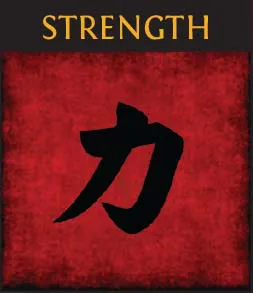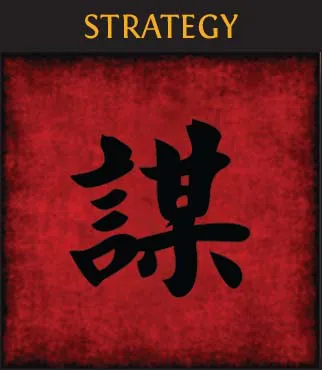
Business 101 -The Art Of War
Becky Sheetz
- 44 pages
- English
- ePUB (adapté aux mobiles)
- Disponible sur iOS et Android
Business 101 -The Art Of War
Becky Sheetz
À propos de ce livre
Project strategic superiority. Often a required read for business in college or required by an employer, The Art of War by Sun Tzu remains one of the most influential books of all time. Becky Sheetz, author and corporate trainer specializing in Sun Tzu's strategies covers core principles offering the original text plus a breakdown of the business and management use of that principle within Sun Tzu's essentials for victory. Organized graphically for easy access and retention in 6 handy laminated pages, this guide can be used throughout school and your career when you want that extra edge for success.
6 page laminated guide includes:
- About Sun Tzu
- About the Art of War
- Why it Matters
- Sun Tzu's 5 Essentials for Victory
- He will win who knows when to fight and when not to fight
- He will win who knows how to handle both superior and inferior forces
- He will win whose army is animated by the same spirit throughout its ranks
- He will win who, prepared himself, waits to take the enemy unprepared
- He will win who has military capacity and is not interfered with by the sovereign
- Sun Tzu's Key Principles
- ?Sun Tzu for Small Business
- Notable Sun Tzu Passages
Suggested uses:
• Students/Teachers – inexpensive reference for any business student for principles everyone should know (since your competition will be using them against you)
• Personal – knowing these principles is a must and can be a strategy in itself that shows a deeper knowledge of business as it relates to people and organizations
Foire aux questions
Informations


- He will win who knows when to fight and when not to fight.
- He will win who knows how to handle both superior and inferior forces.
- He will win whose army is animated by the same spirit throughout all its ranks.
- He will win who, prepared himself, waits to take the enemy unprepared.
- He will win who has military capacity and is not interfered with by the sovereign.

- Superior business strategists aren’t eager to fight at every opportunity. Instead, they only engage when the opportunity is right and there is real benefit to be gained. They realize that it’s often best to avoid conflict altogether.
- It may seem counterintuitive for a general to value the opportunity to gain victory by not fighting. But Sun Tzu knows that, whenever possible, victory should be pursued without fighting:
- Business Application: There are many ways for you to capture your competitors’ cities without laying siege to them. You can make your movements in ways that are undetected by your competitors, buy your competitors out, hire their best performers, or create exclusive relationships with the top suppliers and vendors in your industry. The options are many. Study this principle carefully and you will stand to gain. How can you subdue competitors’ troops without fighting?
- It’s not always easy to know when to advance and escalate, or when to change course or cancel an action. But luckily for us, Sun Tzu makes it clear:
- Don’t make an action unless there is something worth the gain. Motion without advancing your position is wasted effort, and it keeps you from putting your resources where they can be most effective. Conflict should be avoided unless the objective to be gained is of critical importance:
- Business Application: Think about some of the most difficult movements you’ve made in the past year. Have they provided an advantage, or have they simply cost you? What have you learned from them?

- Sun Tzu tells us never to attack strength for strength:
- It’s a mistake to pit your strength against that of your competitor. Instead, think about how to apply your strength to their weakness. Even the strongest adversary has a weakness. It’s up to you to identify it and take advantage.
- Core to knowing when to fight is an awareness of the condition of your adversary. Knowledge of the enemy is a fundamental principle of The Art of War. Sun Tzu advises battle only if the enemy is vulnerable:
- The Art of War is about far more than engaging military forces. Battle should not be a first resort, or even a second:
- “The best policy in war is to attack the enemy’s strategy. The second best way is to disrupt his alliances through diplomatic means. The next best method is to attack his army in the field. The worst policy is to attack walled cities. Attacking cities is the last resort when there is no alternative.” (Gerald A. Michaelson and Steven Michaelson, The Art of War for Managers: 50 Strategic Rules, Avon, MA: Adams Media, 2010, 25)
- The questions you must ask are, What are the most effective ways for you to attack your competitor’s strategies? What about disturbing their alliances, business partnerships, and relationships?
- Never attack unless there is real opportunity—that is, unless the enemy is “undefended”:
- The only way to take on and defeat bigger, more powerful competitors is to do so with superior strategy.
- In one well-executed engagement at a time, Sun Tzu used his smaller number to defeat a larger force. How can you out-strategize the larger competitors in your world?
